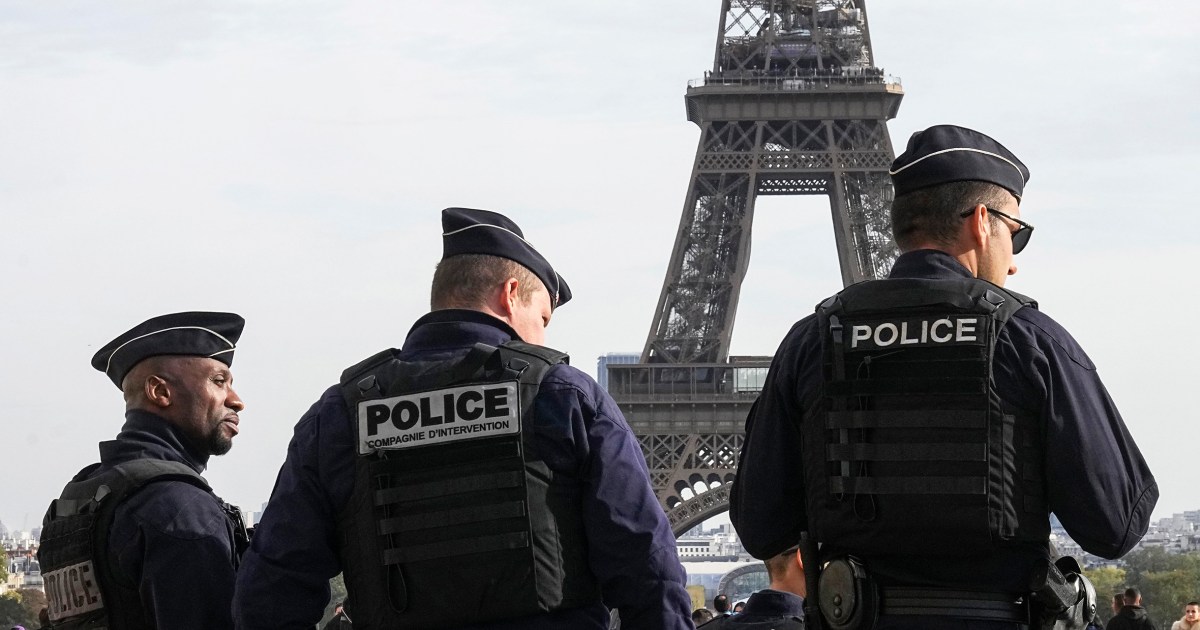In a striking incident last Monday, three individuals were released following an investigation into their alleged placement of five coffins at the foot of the Eiffel Tower in Paris, France. According to the Paris Prosecutor's Office, the suspects, citizens from Bulgaria, Germany, and Ukraine, had positioned the coffins draped with a French flag inscribed 'French soldiers of Ukraine' near the iconic monument on Saturday. This unsettling act has raised questions amidst heightened security in Paris ahead of the Summer Olympic Games from July 26 to August 11.
The three men were questioned by an investigating judge, with prosecutors initially seeking charges of premeditated violence. Officials stated that placing coffins at such a prominent landmark 'is considered an act of psychological violence,' causing distress among monument employees and affecting their ability to work. Despite the gravity of the situation, the investigating judge did not press formal charges but assigned them the status of assisted witnesses, allowing them to remain free as the investigation continues.
Those arrested include the driver of the transport vehicle, a 39-year-old Bulgarian, along with a 25-year-old German and a 16-year-old Ukrainian. Authorities detained the young Ukrainian aboard a Flixbus bound for Berlin. The arrests followed the discovery of the coffins on the morning of the incident, initially raising concerns of potential explosives, which necessitated the involvement of bomb disposal experts and the canine unit.
Moreover, high-profile incidents involving graffiti and public defacement further compound concerns regarding foreign interference aimed at destabilizing French society. The French authorities have accused Russian security services of sponsoring these disruptive actions. Past occurrences include red hand graffiti on the Holocaust memorial and blue Stars of David on Parisian buildings post the Israel-Hamas conflict. French Foreign Minister Stéphane Séjourne has pointed out that these incidents likely involve paid operatives seeking to create societal divisions.
As part of ongoing efforts to address security threats, French authorities have filed preliminary terrorism charges against an 18-year-old man plotting attacks at the upcoming Olympic Games. This arrest underscores the broader context of vigilance and precautionary measures, emphasizing the need for robust security as Paris prepares to host both the Olympic and Paralympic Games. The city's iconic Eiffel Tower will prominently feature in the celebrations, with the Olympic rings displayed and medals embellished with pieces of the tower itself.
- This incident at the Eiffel Tower adds to a series of events that highlight the security challenges faced by French authorities ahead of the international sporting event. The use of symbolic sites and psychological tactics reflects a broader strategy to incite fear and unrest. Furthermore, the investigative focus on possible connections between those involved in the current and past acts of vandalism signifies the complexity and persistence of these threats.
- French authorities' contention with alleged Russian interference underscores a significant geopolitical dimension to these acts of disruption. This intertwines national security with international relations, emphasizing the need for comprehensive strategies to counteract hybrid warfare tactics. Enhanced surveillance, rapid response capabilities, and international cooperation remain pivotal as France navigates the path to a secure and successful Olympic Games.






